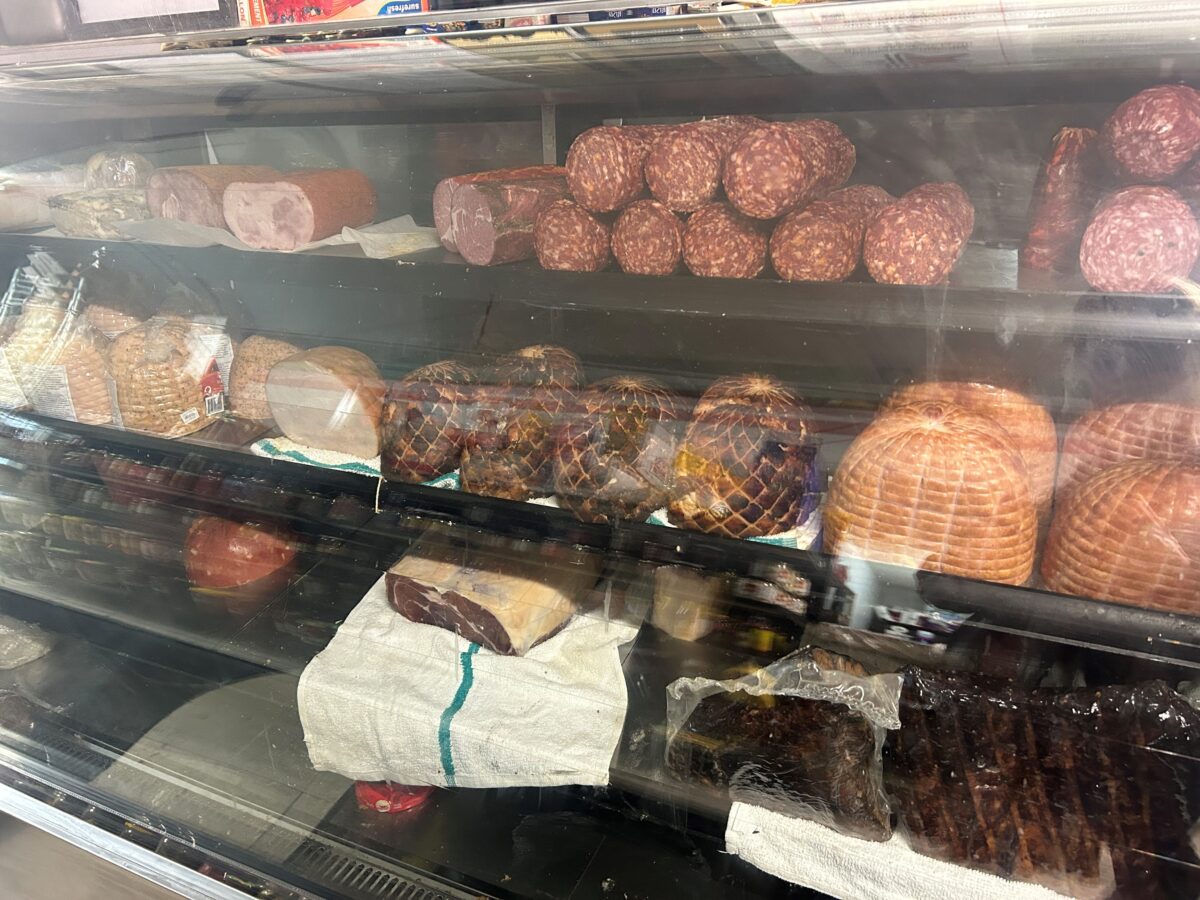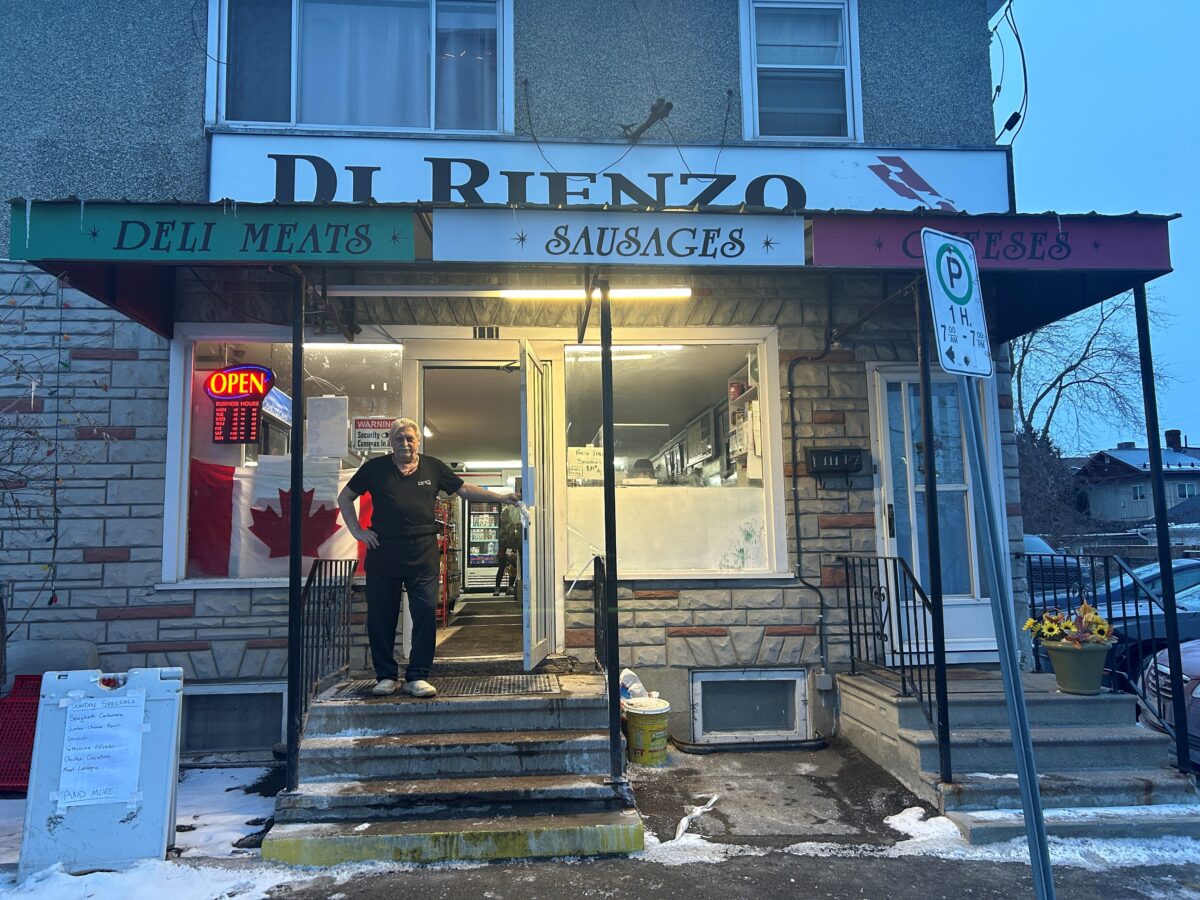For Paolo Di Rienzo, slinging hearty sandwiches and homemade cannolis has been the name of the game for decades now.
Di Rienzo’s Deli and Grocery, on the corner of Beech Street and Champagne Avenue in Little Italy, has been a staple for many since 1973.
Despite being a fixture of the authentic eats in Ottawa for more than 50 years now, Di Rienzo’s, like many other shops in Ottawa, is facing a simple dilemma: the meat (and pretty much everything else), is a lot more expensive.
Capital Current’s analysis of Statistics Canada’s Consumer Price Index revealed the price of common deli commodities, including meats and dairy products, has far outpaced the growth in the price of all items, since Dec. 1, 2019.
Di Rienzo said that, despite the support of regular customers, his sales have fallen by nearly 50 per cent since the end of the COVID-19 pandemic.
”Regulars aren’t buying nearly as much as they did before,” Di Rienzo said. “Our prices have gone up, but they’re still very reasonable.”
Di Rienzo said that, coupled with higher prices, less disposable income among his customers is influencing what they purchase, and when, at the counter.
“People have less money to spend now than they used to, and they’re worried about their budget and watching what they buy a lot more closely,” he said. “I think more people are noticing the price difference in their wallets.”
Capital Current’s analysis of Consumer Price Index data further revealed the price of fresh or frozen meat has far outpaced the price increase on all items, especially after the pandemic.
Furthermore, the pandemic reduced the labour force required to produce meat, causing a higher demand for meat products on the shelf, said Alex Hadjisophocleous, a chartered financial analyst and planner who works with local Ottawa entrepreneurs.
"One of the most lasting effects of COVID-19 on the meat industry has been the disruption in the labour force,” said Hadjisophocleous.
He says the pandemic created a sharp decline in the number of available workers, which affected the farming industry, as well as distribution centres.
“This labour shortage continues to affect the efficiency of getting products to grocery stores, delis and other businesses in the food industry,” said Hadjisophocleous.
Hadjisophocleous added that there are other factors influencing the price you see on the shelf.
“Rising fuel prices during the pandemic further increased operational costs,” said Hadjisophocleous.
Some of Di Rienzo’s regulars are already feeling the impact of higher shelf prices.
In every sense of the word, Dan Auns is a regular at the deli. He has been a consistent shopper there for over 25 years.
Auns says the quality of Di Rienzo’s sandwiches converted him to a loyal customer. He likes the No, 14 with eggplant on it, but sometimes switches his order up.
The price of Auns’ sandwich has almost tripled since his first experience in the shop. Originally $3, it recently went up to $10 in 2024. Auns says the “quality to value ratio” is what keeps him coming back.
Auns, too, is a business owner and says he trusts the local establishment is not overcharging their customers for their product. While prices rise, Auns says there will most likely never be an increase so large it will stop him from shopping at Di Rienzo’s.
Hadjisophocleous said he expects the price of meat will continue to rise, but more slowly.
"While prices have largely stabilized in the short term, it is expected that they will continue to rise in the long run due to inflation,” Hadjisophocleous said.
For businesses like Di Rienzo’s, budgeting can be a major challenge. Di Rienzo says rising costs with his supplier are partially to blame for the increased prices on the shelf.
“We used to get deals from our suppliers when we bought a lot of products, and we don’t get those deals anymore,” he said.

Di Rienzo says although “prices are getting worse every year” he still feels there’s hope for local deli owners.
“It’s a tough competition, for sure. We’re not that bad with pricing though, actually. The grocery stores and big chains are actually pricing their meat even higher, so it’s better for us,” he said.
Di Rienzo added it’s his regulars, like Auns, who keep him in business.
“They’re why I’m still open, and I’m really grateful,” said Di Rienzo.





